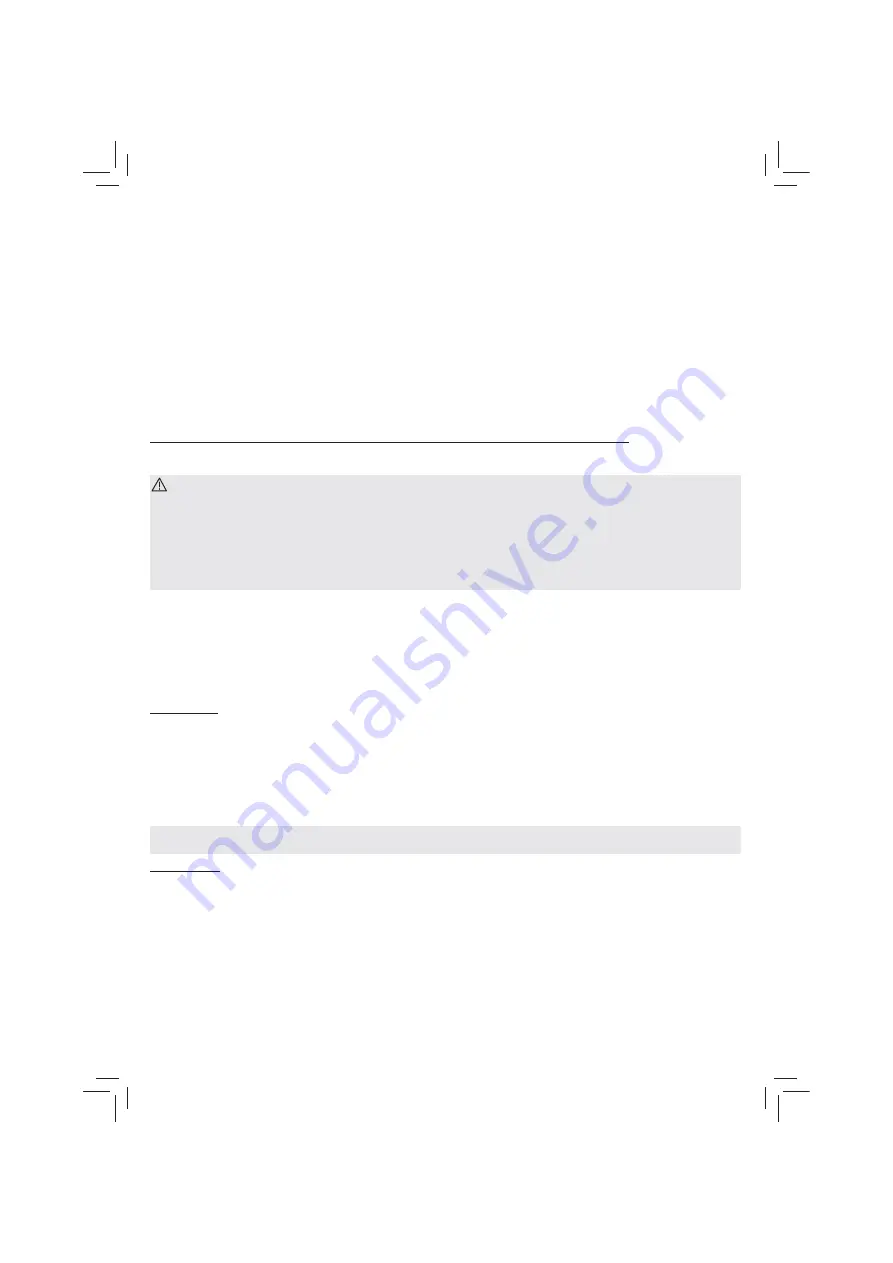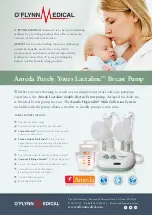
14
Storing the milk
It is possible to store the expressed milk in the fridge or in the freezer by closing the bottle (B1) with the supplied airtight
cap (C5): the expressed milk can be stored in the fridge for a maximum of 48 hours at 4°C, or for up to 3 months, if stored
in the freezer at -18°C.
- In order to prevent the proliferation of bacteria, we recommend feeding the expressed milk immediately after expres-
sion, or storing it immediately, opting for the most suitable solution.
- It is not recommended to defrost or heat up breast milk in the microwave oven or in a pan with boiling water. The
high temperatures may cause serious burns in the baby’s mouth. In addition, the composition of breast milk might be
altered.
USEFUL ADVICE
To further stimulate the production of milk, we recommend taking a warm shower or applying a warm cloth on the
breast just before expression.
To avoid liquid overflow, we recommend never filling the milk bottle above the measuring scale on the bottle.
CLEANING SANITISATION DISINFECTING
Switch off the device before any cleaning procedure and unplug the power cable from the socket.
• Do not perform cleaning or sanitising operations on the breast pump when it is switched on; cleaning and sanitis-
ing operations must be performed in accordance with these instructions for use.
• Do not use abrasive liquid soap/dishwasher detergent to clean the breast pump, its components or the parts of the
breast pump set.
• Only use drinking or bottled water for cleaning.
• Do not use tools to clean the expression valve (C9), as it might be damaged and result in the breast pump being
unusable.
• Do not use abrasive products to clean the breast pump and its components.
DEVICE AND TUBE EXTERIOR
Only use a cloth moistened with antibacterial soap (non-abrasive and with no solvents of any sort).
ACCESSORIES
Separate all the components of the breast pump. Remove the expression valve (C9) from the duct inside the shield cap
(C5) by using the sides and not the central closing flaps.
Note: to remove the silicone tube (B), first disconnect the diaphragm system (C8) from the shield cap (C5) to avoid
overturning. Then grip it from the end that is attached to the upper diaphragm (C8.3), pulling gently.
SANITISATION
Before and after each use, sanitise the accessories by choosing one of the methods described below.
method A:
Sanitise accessories
C1-C.2-C.3-C.4-C5-C6-C7-C8-C8.1-C8.2-C8.3-C9
under warm drinking water (approxi-
mately 40°C) with a gentle, non abrasive dish detergent.
method B:
Sanitise accessories
C1-C.2-C.3-C.4-C5-C7-C8-C8.1-C8.2-C8.3
in the dishwasher with hot cycle. This, more ag-
gressive, type of washing might discolour or, over time, cause the material to become opaque or decay.
method C:
Sanitise accessories
C1-C.2-C.3-C.4-C5-C6-C7-C8-C8.1-C8.2-C8.3-C9
by immersing them in a solution of 50%
water and 50% white vinegar, then rinse thoroughly under warm drinking water (approximately 40°C).
If you also wish to perform cleaning by DISINFECTION, skip to the DISINFECTION paragraph.
After sanitising the accessories, shake them well and place them on a paper towel. Alternatively, dry them with a jet of hot
air (for example hair dryer).
DISINFECTION
After sanitising the accessories, disinfect them choosing one of the methods described below.
method A:
Accessories
C1-C.2-C.3-C.4-C5-C6-C7-C8-C8.1-C8.2-C8.3-C9
may be disinfected.
The disinfectant must be an electrolytic chlorine oxidiser (active principle: sodium hypochlorite) specific for disinfecting,
which is available in any chemist’s shop.
Directions:
- Fill a container of suitable size to hold all the parts to be disinfected with a solution of drinking water and disinfectant,
according to the proportions indicated on the packaging of the disinfectant.
- Completely immerse each part in the solution, taking care to avoid the formation of air bubbles on the parts. Leave the
parts immersed for the amount of time indicated on the packaging of the disinfectant and at the concentration chosen
for the solution.
- Remove the disinfected parts and rinse with plenty of warm drinking water.
- Dispose of the solution following the instructions provided by the disinfectant manufacturer.









































